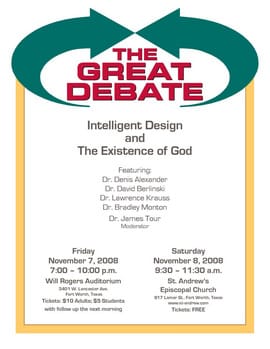A Malodorous Argument for Darwinian Evolution
University of California evolutionary biologist John Avise has penned a book, Inside the Human Genome: A Case for Non-Intelligent Design, and gotten it published by a top academic publishing house, Oxford University Press. Avise, a member of the National Academy of Sciences, has for decades been a leading researcher in evolutionary and ecological genetics. He has written hundreds of research articles and over a dozen books. Clearly he has an impressive scientific mind.
Which makes it all the more astonishing that his new book shows all the intellectual savvy of a typical late-night college dormroom bull session. As his subtitle announces, Avise is anxious to show that, despite the claims of certain renegade biochemists, the molecular features of the human genome discovered by science in the recent past show no traces of intelligent design. They are chaotic, haphazard, a mess. Any designer with the smarts of at least, oh, say, John Avise, would have done a much better job.
Avise tries to steal three bases on a bunt. He claims that both [Darwinian] evolution and intelligent design can explain the functional parts of the genome, but only evolution can explain the dysfunctional parts (because a beneficent God would not have made those). So he points to what he deems to be poor design and, voila!, that proves the most intricate, functional molecular machines arose by random mutation and natural selection. No actual separate demonstration of that is thought necessary. In fact, Avise makes only the most cursory attempt to address the scientific argument for ID. His chapter 5 is in large part devoted to answering (after a fashion) my Darwin’s Black Box. Yet in the chapter Avise’s only attempt to explain one of my book’s examples of irreducible complexity is to cite Liu and Ochman’s (2007) dubious endeavor to tag all bacterial flagellar genes as descendants of one amazing prodigy gene. The rest of the chapter is pretty much hand waving.
Read More ›







































